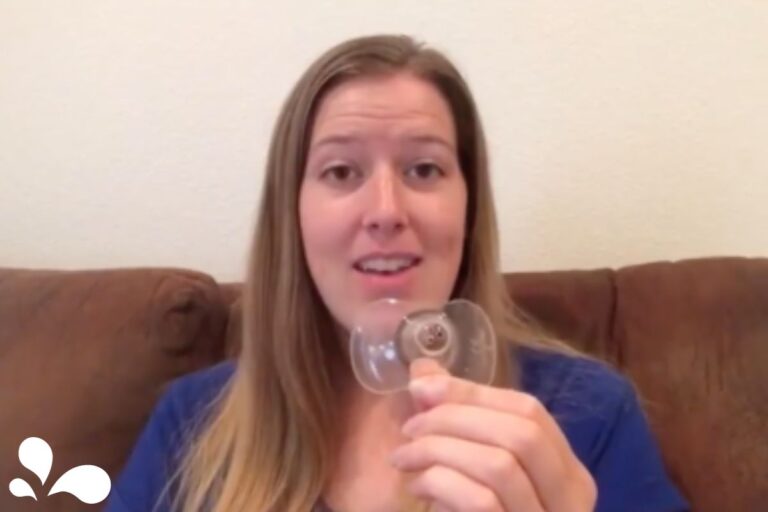There are many approaches to breastfeeding. There are countless suggestions on how to time feedings, but the most recent studies find that responsive feeding, also known as on-demand feeding, is best for both mother and baby. Responsive feeding is when a baby is fed based on responding to cues rather than a schedule.

How often do newborns breastfeed?
Now, you may be wondering, “If I feed my baby every time baby gives a cue, won’t my day be filled with feedings?” Not exactly. All babies are different, and the exact number of times a baby needs to eat will differ from baby to baby and over time.
You can expect a baby to feed 8-12 times in 24 hours. It is recommended to feed baby at least every 2-3 hours to ensure that they are getting the nutrients they need to grow.
Another variable to consider in responsive feeding is the mom’s milk. Every mom’s milk is different, and it changes throughout any mother’s breastfeeding journey. There will be times where it will be more filling and other times where it will not; this typically shouldn’t be of concern, but it is good to be aware of when noticing how often baby feeds.
Blog post: Will I produce enough breastmilk for my baby?
Why is on-demand feeding so important?
Responsive feeding has plenty of powerful benefits. The most notable benefits are as follows:
- Establishes, builds, and maintain breastmilk supply
- Mature milk comes in faster following birth
- Regaining birth weight occurs more quickly
- Jaundice risks are lowered
Further, providing responsive feeding helps meet babies’ needs while growing and making developmental leaps. You can learn more about standard growth spurt times here.

What about nighttime feeds?
Responsive feeding should branch into the night, as well. Baby’s feeding needs do not change based time of day.
We all wake at night, and it is common for babies to need help to return to sleep. Assisting baby back to sleep often includes a feeding. It is important to maintain responding to baby’s cues even at night. The length between feedings is often shorter than expected due to how quickly breastmilk is digested and the infant’s stomach’s size.
Further, there are a myriad of benefits to responding to hunger cues at night, including the following:
- Night feedings are thought to help protect against SIDS (Sudden Infant Death Syndrome)
- Night feedings help keep your supply up. Babies take in about ⅓ of their milk at night. Prolactin levels (breastmilk production hormone) are highest from around midnight to 6 AM
Understanding these facts will help bolster you when you face those late-night feedings.
If you need help identifying your baby’s hunger cues, you can find a full explanation in this blog post.








